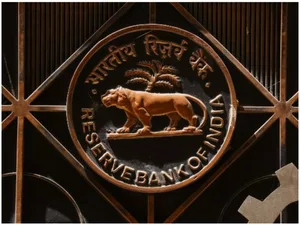RBI Disagrees with IMF’s View on India’s Debt-GDP Ratio
RBI economists released a report rejecting the IMF’s view that India’s debt-GDP ratio could exceed 100% if historical shocks materialize. They stated that the country does not need to cut government expenditure. The article in the RBI bulletin stated, “Our simulations reveal that the general government debt-GDP ratio swerves below the projected path set out by the IMF.”
According to the report, the general government debt-GDP ratio is projected to decline to 73.4% by 2030-31, which is 5 percentage points lower than the IMF’s projection of 78.2%. This comes as the debt-GDP ratio for advanced economies is projected to rise from 112.1% in 2023 to 116.3% in 2028, and from 68.3% to 78.1% for emerging and middle-income countries.
The RBI economists rejected the IMF’s contention that India’s general government debt would exceed 100% of GDP in the medium-term. They emphasized that judicious fiscal consolidation and growth outweigh the short-run costs. The article also highlighted the importance of spending on social and physical infrastructure, climate mitigation, digitalization, and skilling the labor force for long-lasting growth dividends.
Furthermore, the article pointed out that the Interim Budget for 2024-25 places the gross fiscal deficit of the Union government at 5.1% of GDP in 2024-25, in line with the target of 4.5% of GDP by 2025-26. It also noted that the impetus provided to capital expenditure in the post-pandemic period has been sustained by increasing its share to 3.4% of GDP.
The report by RBI economists provides a contrasting view to the IMF’s projection, highlighting the potential impact of recalibration of government expenditure on India’s debt-GDP ratio. The findings emphasize the need for targeted government spending on key sectors to drive long-term growth and fiscal consolidation, thereby challenging the notion of immediate fiscal tightening.

 Elliot Grainge Net Worth 2024: How Much is the Founder of Ten Thousand Projects Worth?
Elliot Grainge Net Worth 2024: How Much is the Founder of Ten Thousand Projects Worth? Media Matters Announces Layoffs Amid Legal Battles
Media Matters Announces Layoffs Amid Legal Battles Who is Bobby Flay’s Girlfriend? Who Is The American chef and restaurateur Dating?
Who is Bobby Flay’s Girlfriend? Who Is The American chef and restaurateur Dating? Stand-Up Comedian Ashish Solanki Removes ‘Pretty Good Roast’ Episode with Ashneer Grover, Netizens troll Ex-Shark Tank Judge
Stand-Up Comedian Ashish Solanki Removes ‘Pretty Good Roast’ Episode with Ashneer Grover, Netizens troll Ex-Shark Tank Judge Gabe Newell Net Worth 2024: How Much is the President of Valve Corporation Worth?
Gabe Newell Net Worth 2024: How Much is the President of Valve Corporation Worth? Priscilla Presley Net Worth 2024: How Much is the American businesswoman and actress Worth?
Priscilla Presley Net Worth 2024: How Much is the American businesswoman and actress Worth? Erik Prince Net Worth 2024: How Much is the American Businessman Worth?
Erik Prince Net Worth 2024: How Much is the American Businessman Worth? Federal Judge Orders Jane Street to Disclose Details of Billion-Dollar Trade Amidst Legal Battle with Millennium
Federal Judge Orders Jane Street to Disclose Details of Billion-Dollar Trade Amidst Legal Battle with Millennium